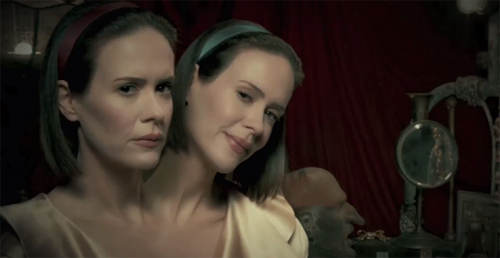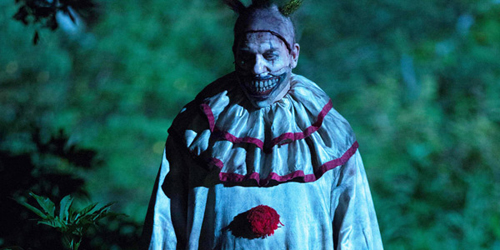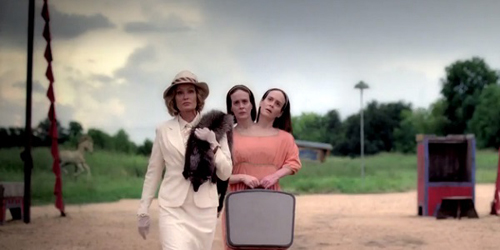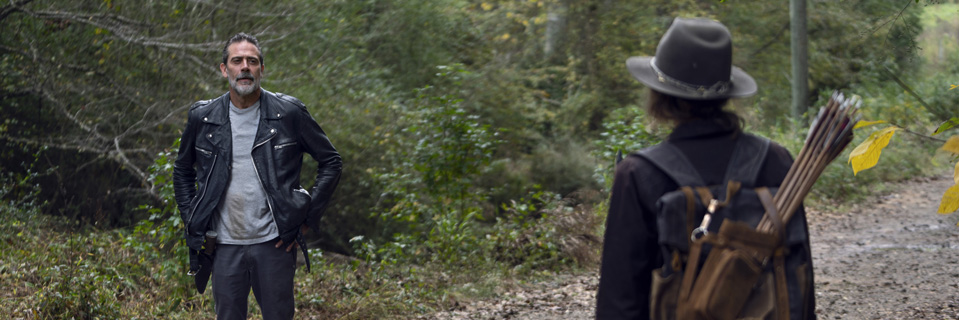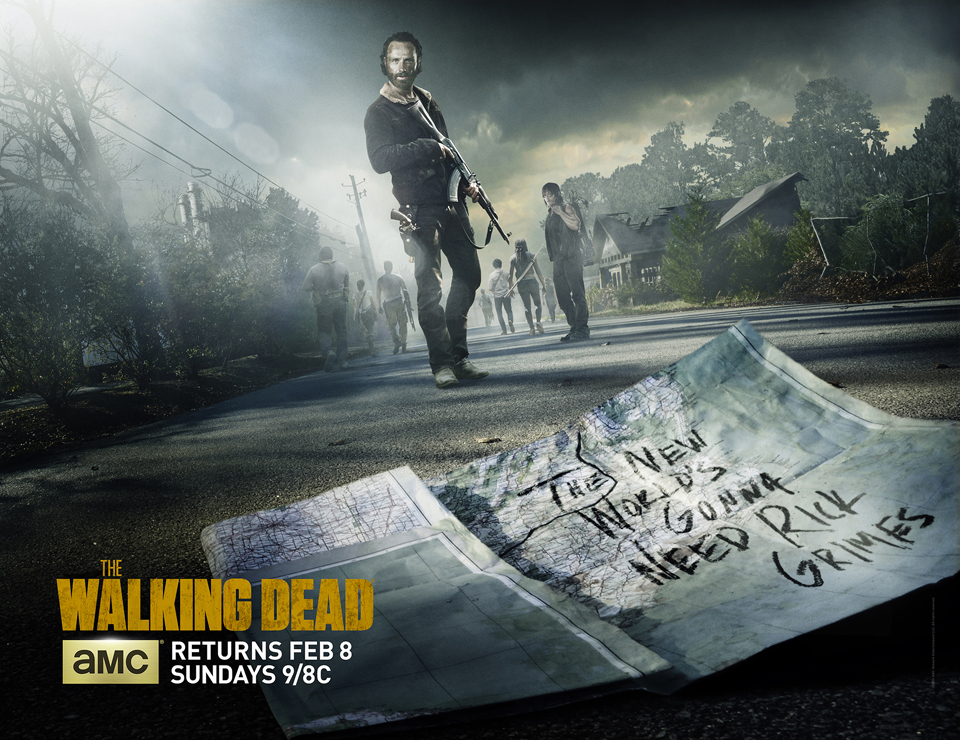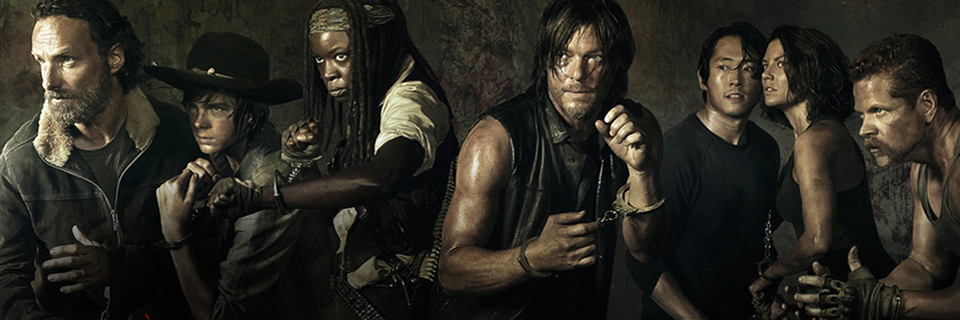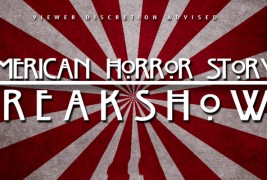
This being the fourth season of the American Horror Story vehicle, I was really looking forward to the show taking on one of the most intriguing and taboo topics in the world of horror—the freak show. Like most, I was overjoyed the read that the usual suspects from the first three seasons were returning. Like many, I quickly found myself losing interest in a season that once again was losing itself to quantity over quality and trying to get me to feel bad for bad people.
This season review will contain as few spoilers as possible, because I know there are several who prefer to binge watch a show as opposed to waiting to see an hour snippet each week. So, please—unless you want to know NOTHING about American Horror Story: Freak Show, feel free to step right up and be mystified (and I mean that in the best and worst ways possible).
When a show with as much wit, charm and star power as American Horror Story takes the stage, I do not think it’s beyond the realm of fairness to assume that the story you are about to be told is going to be awesome, twisted and, above all else, HORRIFYING. Creators and producers Ryan Murphy and Brad Falchuk have made a pretty penny creating the cult hit series and considering the amazing cast and production value put into this season in particular, I am a little more than frustrated that I feel like I got ripped off.
Now that the curtain has finally fallen on the flattest season of American Horror Story to date, I must say that there were a ton of amazing opportunities missed this time, both in storyline and actors’ portrayals.
The season opens in Jupiter, Florida in 1952. Following a brutal discovery in their family home, we are introduced to Bette and Dot Tattler (Sarah Paulson), conjoined twins who may share the same body but couldn’t be more different in personality. Word spreads quickly that there is a “monster” among the “normal folks” and we soon meet Elsa Mars (Jessica Lange), a cunning and convincing woman who just happens to own a local carnival freak show. Elsa has spent most of her adult life collecting a wide range of humans with anomalies, from the world’s smallest woman to the bearded lady. It doesn’t take long for her to convince the conjoined twins that she can offer them a happier home than anywhere else in a land still heavily segregated and ignorant to the ways of life.
Over the next few episodes, we are introduced to a number of freak show residents, from the charismatic but haunted Jimmy Darling (Evan Peters), a young man with syndactyly (hence the moniker of Lobster Boy) to the maniacal serial killer Twisty the Clown (played fantastically by a mute John Carroll Lynch). This season spotlights countless actors and performers who have lived with a unique skill set their entire lives, and a few really shine as regulars throughout the season, particularly Mat Fraser and Erika Ervin, who play Paul the Seal Man and Eve the Amazonian Woman, respectively.
As the episodes pile up, so do the body counts (as expected) and the over-inflated story lines and diluted archetypes (also, sadly, as expected). The killer clown, the sexually repressed conjoined twins, the sharp tongued German who escaped the Third Reich only to become a monster all on her own in the Land of the Free, the psychotic mama’s boy, the freak who just wants to be a “normal guy”—they’re all here. Some shine (Peters, Wittrock and Lynch) while an actress as iconic as Jessica Lange can’t even manage to get herself out from under the charmless clichés bestowed upon her character by the writing team. Others, like Emma Roberts and Michael Chiklis, are little more than disposable episode fodder here and there. Sure, one meets a rather gruesome death that at least brought a few pangs of real horror to the show, but overall…meh.
This season showcases some of the best characters the AHS folks have ever come up with—Twisty the Clown was instant gold but he’s wasted away (literally and figuratively). Chester Creb (Neil Patrick Harris) had all the makings of one of the creepiest killers in television history, until the Freak Show writing team decided to lock him away before he even had a chance to really lose it. Dandy Mott (Finn Wittrock) was downright awesome from start to finish, but rather than spending more time on his horrific hobbies and backstory, we were treated to dull episodes that decided to spend more time explaining how Elsa obtained Ma Petite for her show (Dr. Pepper, really?) and wasted time filling in the backstory of Chiklis’s character, Dell, who ultimately didn’t matter at all in the grand scheme of things.
As with every other season of the show so far, there has been a lot of debate on “style versus substance” with this vehicle. This is the first season where I, as a viewer, actually felt that was the case. It seemed when characters were at their weakest or story arcs began to crumble fastest, it was when the mindless murders and, to be fair, beautiful imagery and colors stood out most. If giallo-style horror has taught us anything, it’s that you don’t have to sacrifice substance for style. This is a lesson Ryan Murphy and Brad Falchuk should make a point of learning before next season’s filming begins.
While every season has had at least one glaring plot hole, this season had a minefield. So many, in fact, that I would love for you RavMon fanatics to share your glaring plot holes, theories and rants down below in the comment section of this article. Sure, some could be attributed to shoddy business ethics (how many times was the freak show sold?!) and others could take the lazy way out and be claimed as “ambiguous endings”, but really, it boils down to lazy writing.
Many AHS fans will not like to read what I say next, but I believe it to be true: I think the writers believe the same audience that gobbles up a show like Glee with starry-eyed wonder is the same audience that sits down to partake in some horror storytelling each Wednesday night. I know this is NOT the case with most of my friends and horror relatives who watch the show, but can you blame me for thinking this way? Either they think we aren’t savvy enough to really enjoy a season like season one’s Murder House or the writers have simply gotten lazy and gone for shock/pop value over legitimate story-telling.
“Ooh, look! Neil Patrick Harris! It was cool just to see him on the show, no worries that his character was about as important as a rubber band….”
“Oh man, they did my favorite Nirvana song last night! Wait, what happened during the other 40 minutes of show time?”
“Her WHAT is that big?! They thought she was a guy all her life because of this?! Oh man, pass the popcorn!”
The problem with this season of American Horror Story, above the other two I’ve seen thus far (I’ve yet to see Asylum but wholeheartedly look forward to it) is that I just didn’t care when any of the characters were killed off (except for Twisty, and even then, it wasn’t because I was rooting for the psychotic clown, it was because I knew the show had just lost its best storyline). Bullets entered brains at a breakneck pace this season and while Ma Petite’s death was semi-sad, I didn’t particularly mourn the loss of a side character who served little more purpose than being a “pet” acquired for a few beverages by Elsa Mars.
I can’t hold back on spoilers anymore. Please refrain from reading the next two paragraphs if you’ve yet to see the finale. You’ve been warned…
The finale was a terrible disappointment for me. I wasn’t sure if the show was hoping I’d be happy that Elsa Mars gets to live in a Freak Show purgatory after murdering her long-time best friend Ethel (Kathy Bates), helping destroy said best friend’s corpse even worse by decapitating it with a chain, handing Pepper off to her miserable sister the moment Elsa began to grow weary of being a matriarch to the freak show, selling off Belle and Dot to Mother Mott and Dandy or selling the show to the mentally unstable Chester and Dandy. If they were hoping for misty-eyed applause for me, forget about it. There was nothing to like about Elsa Mars and the fact that she didn’t have to pay for her sins made the show even more frustrating for me. An eternity serving as Stanley’s (Dennis O’Hare) assistant in a twisted sex ring would have been much darker and much more entertaining.
I was glad the rest of the freak show gang found their salvation in this afterlife, but that ending was far too good for a selfish and careless woman like Elsa. It felt a lot like every other season of AHS has so far—panning to Jessica Lange. While I love Lange and have enjoyed her roles in Murder House and Coven, you could see that even those endings were very Lange-friendly as far as tying up loose ends and keeping her on screen for as long as possible.
In the end, American Horror Story: Freak Show only hit on three of those five words. A freak show based in Jupiter, Florida, there was hardly an honest ounce of horror in the season and what it succeeded with in aesthetics and scenery, it fell terribly flat in story.
The show will go on, so here’s hoping for a really good encore to Freak Show.


